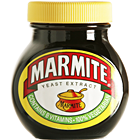Unilever results leave analysts with mixed impressions; volumes hit in food
The Anglo-Dutch giant’s FY2011 results to 31 December. Profits of €4.25bn were flat from the previous year. Margins were lower but revenues grew 5% to €46.5bn.
Darren Shirley, analyst with Shore Capital, in a note on the results, said the food and personal care group’s total Q4 underlying sales growth was modestly below what was anticipated - at 6.6% - and a tick-down from the 7.8% reported for Q3.
“We believe the market will be disappointed will the slowdown,” said the food industry specialist.
He added that Shore believes the increasing contribution from acquisitions is noteworthy at 1.2% for the FY and 2.4% for Q4.
And the analyst said he expects “acquisitions - of the bolt-on nature - to become a sustained feature of the Unilever investment case.”
Paul Polman, Unilever CEO, admits that in the food business, price hikes hurt the volumes, but he noted “we have grown in line with our markets and gained share in many of our key businesses.”
The group’s overall performance, continued the CEO, was driven by outstanding growth in emerging markets and the home care and personal care categories. “We invested heavily in our brands and exit the year with positive momentum,” said Polman about that division.
The CEO estimates cost headwinds should be less impactful this year than in 2011, even if the ‘macro-economic’ environment looks set to remain challenging in 2012.
Andrew Wood, senior research analyst at US-based Sanford C. Bernstein, considers the Unilver results to strong and resilient in a very tough environment, and that the financials overall “were much better than some highly-regarded peers.”
Wood said that management’s guidance that the economic conditions would continue to be ‘difficult’ does not come as a surprise but he said analysts were hoping for more positive information on input costs for the coming year.
Dressings and spreads business
Unilever’s condiments division is one that has been tipped for divestment by many industry watchers but in the FY results, Unilever flags up the fact that flavoured mayonnaise has done well in Europe, having launched in Germany, Austria and Portugal.
The “spreads volumes were negatively impacted by price increases but we delivered strong underlying sales growth. Innovations which focused on taste, for example Flora Pro.Activ Buttery and Rama Irresistible spreads, and on expanding use beyond simply spreading, for example liquid margarines, continued to perform well,” added the group.
Savoury growth slowed in the fourth quarter, said Unilever, primarily reflecting the impact of mild weather on soups.
“Emerging markets grew underlying sales by double digits, reflecting a good performance by our food solutions business and by cooking aids in Asia, Africa and Latin America. Knorr jelly bouillon and baking bags continued to perform well,” said the Anglo-Dutch company.
The ice-cream category “progressed well” in 2011, continued the group, and said segment’s performance was driven by strong innovations and the introduction of ‘iconic’ brands into new markets
“The launch of Magnum in Indonesia and the US and Max in Europe were particular highlights. Despite strong competition in the North American take home market, the Breyers Blast innovation performed well and Cornetto Enigma grew well in Europe and Turkey,” added Unilever.

















